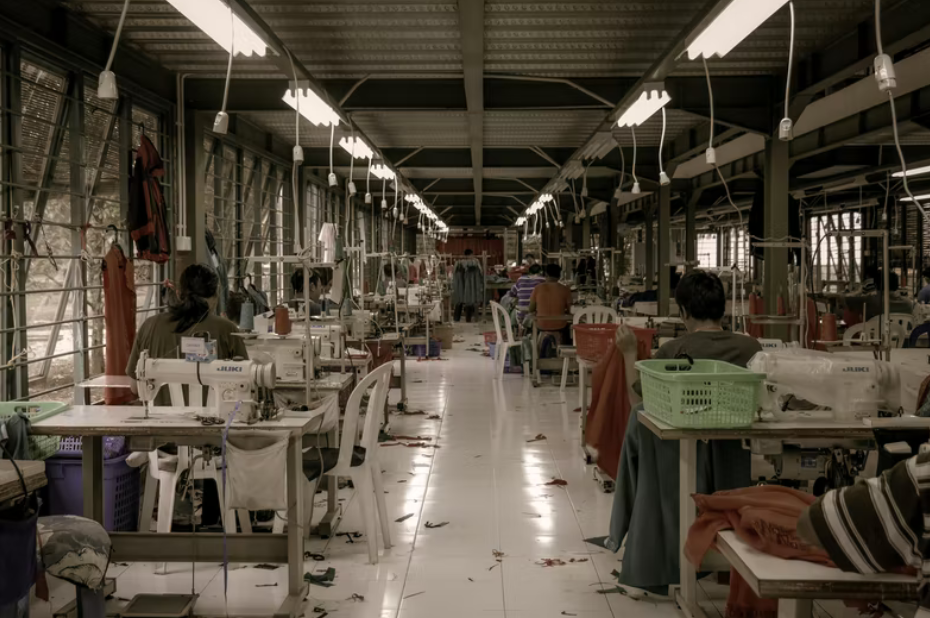Fast Fashion isn’t a good look
By Keziah Rutschow, Reporter
You need to stop making excuses for fast fashion, and here is why. Many are familiar with the term “fast fashion” nowadays, and many are aware of its issues, yet few take steps to fix the industry or find alternatives. For those who aren’t familiar with the term, the Oxford Dictionary definition of fast fashion is “inexpensive clothing produced rapidly by mass-market retailers in response to the latest trends.” Today, clothes are commonly made in sweatshops and through the exploitation of workers in the global South and negatively impacts the environment. Today, we have normalized the mass production of fast fashion. We have fallen victim to this overconsumption-driven society in which we need more and more products in the cheapest way possible. I don’t want to make people guilty for following this cycle as I have been a victim of this myself, but I’m sick of people constantly making ignorant and close-minded excuses for this global disease.
Fast fashion took off between the late 1990s and early 2000s. Online stores such as Shein, Aliexpress, H&M, Zara, Topshop, and forever21 swept through the fashion industry, making runway trends accessible and affordable. I knew of all these companies and bought from fast fashion ever since I was young but never thought about where the clothes came from. This industry grew quickly with the demand for cheap fashion trends from a younger generation of consumers. Just last year, the fast fashion industry made roughly 30.58 billion dollars in revenue with an annual growth rate of 21.9%.
Considering the fashion industry is the 4th biggest polluter globally, the inclining fast fashion industry is not so bright for the future of this planet. The fashion industry consumes about one-tenth of the planet’s water to clean products and run factories. Clothing dye is extremely toxic; it ends up in our oceans and makes up 20% of wastewater. Clothing made from synthetic fabrics cuts down the price for clothes but counts for 35% of microplastics found in the ocean. These microplastics harm marine ecosystems and release more carbon emissions than cotton. The only way to battle these issues is to cut down on the overconsumption of clothes.

Reducing our consumer habits is easier said than done, especially if you are a fashion lover like me. Our poor shopping habits, especially towards fast fashion, lead to piles of clothes in landfills because we couldn’t help ourselves to more.
I love thrifting and so do many; more issues and debates have arisen as it becomes more popular. Thrifting should be made available to everyone but should not be something to take advantage of. Many middle to upper-class people take thrifting as a free pass to buy as much as they want without thinking about others, which has led to the gentrification of thrift stores. This has caused a soar in prices, making thrifting lose its purpose of affordable clothes. I believe buying from thrift stores is a great way to start shopping more ethically on a budget. But many take this chance from others by reselling thrifted clothing for a higher price on online stores such as Depop or Thredup. And online thrift stores are great ways to buy clothes online second-hand ethically, but again many use it as a way to overcharge customers on clothes they cheaply bought from their local thrift store.
I’ve heard many excuses for fast fashion from friends, and the media are completely simplified. I commonly hear the argument, “Well, what if you don’t have the money for anything else?” or “You’re being classist because you assume everyone has the same resources and money.” There is some truth in these statements; some people don’t have access to secondary stores or can’t afford sustainable products. But when I argue that people need to stop buying fast fashion, I am not talking about the people buying a few things from a fast-fashion company and will get as much use out of it as possible. I’m talking about the people who spend hundreds of dollars at fast fashion companies or refuse to use their resources. Another common argument I’ve heard is, “Well, I’m supporting someone’s job and keeping millions of people in jobs.” Again, if you put it that way, you keep someone in a job. But you are also supporting and excusing companies who exploit and abuse their workers. Instead of giving money to fast fashion companies to “keep someone in a job,” you should use that money to advocate for better working conditions and pay. You can talk about how horrible fast fashion is, but you’re not doing anything until you reject and protest against these unethical companies.
Fashion is something everyone should be able to enjoy and use to express their true self, though we all should try to be mindful of what we are buying, where it’s coming from, and how much we are consuming. Fast fashion is wrong and unethical, point blank period. I’m not telling you to stop buying from fast fashion companies or your favorite thrift stores. I’m telling you how important it is to be aware and mindful as a consumer and continue spreading awareness.
